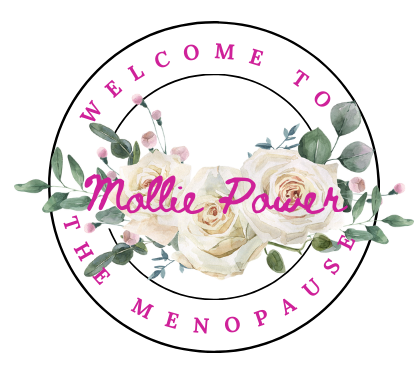
My experience with menopause has taught me that the changes it brings are not just physical; they extend to cognitive aspects like memory, focus, and concentration. In the earliest stages, I noticed subtle differences in how sharp my mind felt, recalling names took a beat longer, and concentrating through a busy day became more of a chore.
You might wonder, ‘Is this normal during menopause?’ I have asked myself the same and discovered it is indeed common. Hormonal fluctuations play a significant role in this new mental fog. As oestrogen levels dip, they can affect the brain just as much as they impact the rest of the body. Cognitive aging also adds a layer of complexity, altering our brain’s processing speed and capacity.
Dispelling myths about cognitive decline is vital. A common misconception is that menopause signals an inevitable and steep decline in brain function. While changes occur, they do not spell doom for cognitive health. Understanding lets us approach these shifts not with fear, but with informed positivity.
With this awareness, we can take active steps toward maintaining cognitive sharpness. In the next section about the mind-body constructive collaboration, I will share actionable advice on how the connection between physical health and mental alertness can be harnessed to reinforce cognitive health through nutrition, sleep, and exercise.
The Mind-Body Synergy: Strengthening Cognitive Health
The connection between the mind and body is undeniable and deeply influential in managing menopause-related cognitive challenges. Understanding how physical health can impact mental acuity is vital. I embrace a holistic view, aligning physical wellness practices with mental exercises to improve overall brain function.
Nutrition plays a pivotal role in cognitive health. A balanced diet rich in omega-3 fatty acids, antioxidants, and vitamins can support brain function. I recommend incorporating foods like fatty fish, berries, and leafy greens into daily meals. Hydration, too, cannot be overlooked. Adequate water intake is crucial for maintaining concentration and preventing fatigue.
Sleep is a foundational element of cognitive well-being. Many women struggle with sleep disturbances during menopause, which can lead to memory lapses and reduced focus. Establishing a consistent sleep routine and creating a restful sleep environment can alleviate these issues, thus supporting cognitive function.
Regular exercise is another cornerstone of cognitive health. Physical activity increases blood flow to the brain and fosters the growth of new neural connections. It also reduces stress and anxiety, which can often exacerbate cognitive symptoms in menopause. I suggest finding an enjoyable form of exercise to ensure consistency.
Creating a Nourishing Environment for Your Mind

As women progress through menopause, the calmer shores of stable cognitive health may seem just out of reach. But with some targeted changes in your diet and lifestyle, you can create a more nourishing environment for your mind to thrive. Let us explore how.
First, consider midlife stressors that can feel particularly taxing during menopause. These include work pressures, family demands, or personal challenges. Such stresses can directly impact memory and concentration not just due to the emotional weight but also because of how they influence hormonal balance and overall health.
Addressing nutritional deficiencies is also crucial. Brain function is heavily influenced by the nutrients it receives. Omega-3 fatty acids, B vitamins, and antioxidants all play important roles in maintaining cognitive health. Ensuring that these are present in your diet can combat mood swings and support your body’s neurological functions.
Do not underestimate the power of social engagement and mental stimulation. Regular interactions with friends and engaging in mentally challenging activities such as puzzles or learning new skills can forge new neural pathways and reinforce existing ones.
Finally, keeping an eye on thyroid changes and vasomotor symptoms, such as hot flashes, is key. Both can affect sleep, mood, and cognitive functions. Consult your healthcare provider for advice tailored to your needs and consider monitoring your thyroid function, especially if you notice ongoing memory or concentration issues.
Practical Mindfulness Strategies for Enhanced Focus
Mindfulness is not just about staying present; it is about actively shaping your environment to support your cognitive health. By adopting practical, mindful strategies, you can enhance your focus and safeguard your concentration during menopause. Here are some ways to do just that.
Start with tuning into your body’s signals. Acknowledge moments when you are feeling more fatigued or forgetful. This self-awareness can guide you to take breaks or seek activities that rejuvenate your mind.
Stress is a common thread that can fray your focus. Develop a toolkit of stress management techniques, such as deep breathing exercises, meditation, or yoga. What works for someone else might not be your best solution, so it is worth trying different methods to see what fits your lifestyle.
Looking at your consumption of caffeine and alcohol is also wise. Both can affect your sleep and, by extension, your memory and concentration. Finding the right balance might mean reducing your intake or choosing to enjoy these beverages at times that will not disrupt your sleep.
Your daily routine plays a significant role in cognitive performance. Structure your day with regular periods dedicated to mental rest and activities that stimulate your mind. It could be as simple as solving a puzzle, reading a book, or taking up a new hobby. These actions not only bolster focus but also may help maintain mental sharpness over time.
Lastly, give yourself permission to adjust as needed. What works today may need tweaking tomorrow. Your journey through menopause is personal, and so is the pathway to maintaining your cognitive well-being. By staying mindful and proactive, you’re not just coping with menopausal changes; you’re thriving in spite of them.
For further information or tailored advice, consulting with a healthcare professional is always recommended. They can offer guidance that is specific to your needs, ensuring you receive the best possible support during this transformative period. With the right strategies and support, you can thrive well beyond perimenopause. In addition to seeking professional advice, gaining insights into your hormonal health can be empowering. Consider the award-winning, at-home Hormone and Fertility test by Hertility. This comprehensive test includes an online health assessment, an at-home blood collection kit, and the expertise of a personal gynaecologist to analyse and deliver your results. Whether you are in the preliminary stages of Menopause or simply curious about your hormonal balance, Hertility’s at-home test can provide valuable information to guide your wellness journey. Take charge of your health, and gain clarity into what’s happening inside your body at any life stage.”
Share Your Thoughts Experiences with Us!
We love hearing from our readers! If you’ve just finished reading our latest post, we invite you to share your thoughts, insights, or personal experiences related to the topic. Your perspective adds richness to our community, and we can’t wait to learn from your unique viewpoint.
Feel free to leave a comment below and connect with fellow readers. Let’s build a vibrant community together!
Happy sharing!
